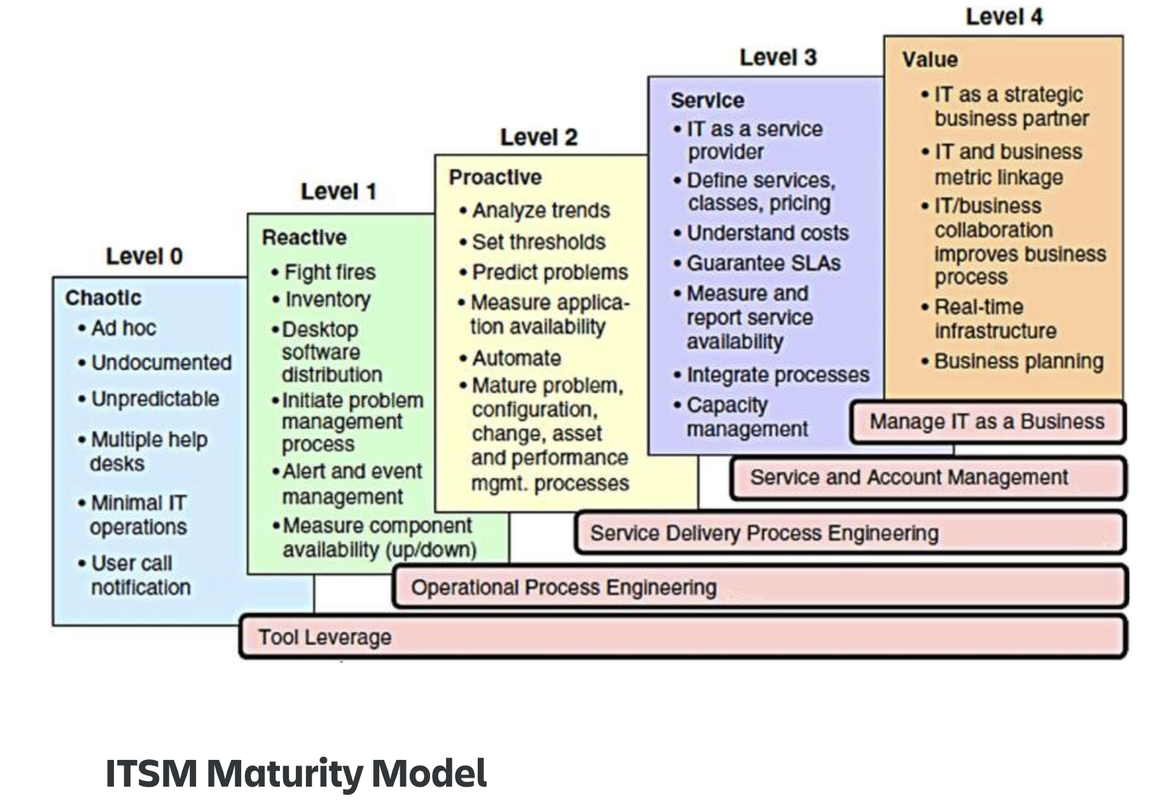Maturity Matters
Not all businesses are ready for the complexity of a global launch. Maturity, training, documented practices, and scale play a huge role in what a team can accomplish. In the same way, not all IT organizations can offer the full breadth of IT Services covered in the previous sections.
Why does maturity matter?
The maturity of an IT organization will impact the ITIL practices they're able to implement, and what they'll need from an ITSM solution. Check this diagram for ITSM maturity model:

ITSM Maturity Model
- The Gartner IT Maturity Model (image above ⬆️) is a useful tool to assess an IT team's current maturity. The lower maturity teams are typically more chaotic with ad hoc requests and undocumented processes. Service Request Management might be a huge part of their day, but they don't have great processes in place for Change Enablement.
- The more the teams mature, the more process and value-driven they get. They're able to offer Incident Management and Problem Management. The team may begin implementing a workflow framework to shape their processes, like ITIL.
- Every team wants to be on the complex service and value end of the scale. They must work through organizational process or technology challenges to achieve this goal.
- Effective organizations want IT delivered as a solution based service.